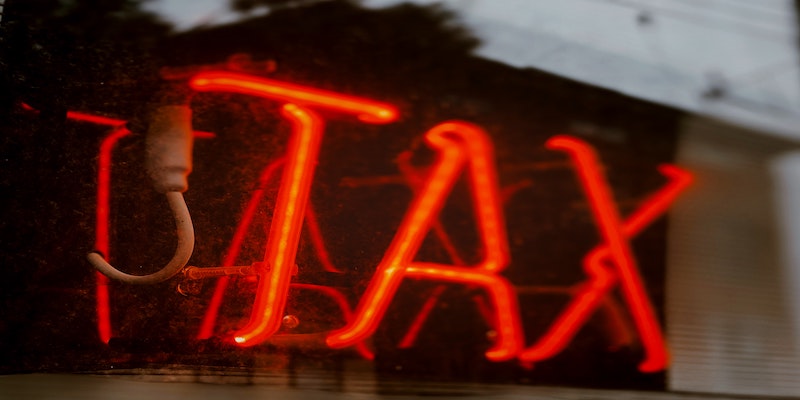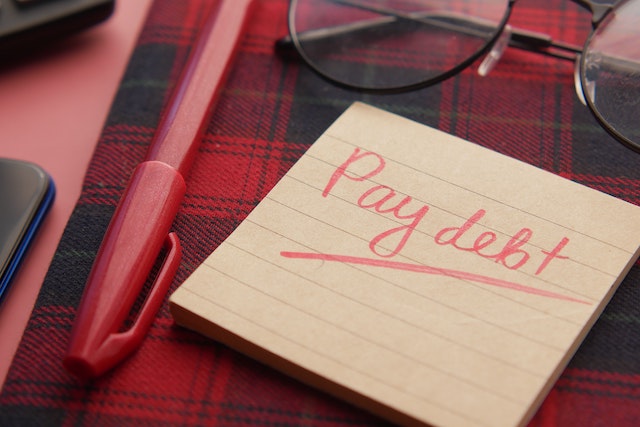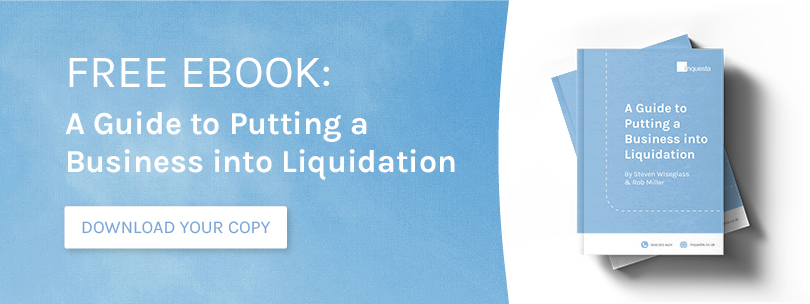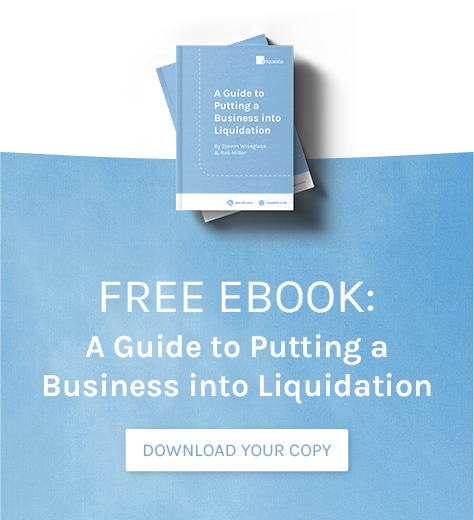For any business that has been struggling for long periods of time with little to no respite on the horizon, closing may seem like the only viable option left. However, when you have a debt with HMRC, we would advise that you approach the situation with caution.
For example, the very first questions you should ask yourself is: can HMRC pursue a dissolved company, and what types of tax debts could I have? As a business owner it is important that you know the answer before you begin the process of closing down your company, as well as how long they may be able to legally pursue you, what they may look at, and more.
Types of Tax Debt
All businesses and their owners/directors are expected to keep up with regular payments on a number of taxes to HMRC. Common types of tax debt stem from needing to repay PAYE, National Insurance Contributions, Corporation Tax, and VAT. Failure to pay any of these on time can quickly spiral into a difficult situation for you and your business.
There are four common forms of taxation that businesses can fall foul of repaying, these are:
Value Added Tax (VAT)
The most common and well-known form of taxation. VAT is added to all taxable goods or services purchases sold by a business whose annual income exceeds the £83,000 VAT threshold set out by the government.
The current amount of VAT is set at 20% on top of any sale, and is paid by the business in the form of a VAT return every quarter. Fraudulent activity, or failure to pay will likely result in serious sanctions.
Pay As You Earn (PAYE)
PAYE is a tax collection system introduced by the government that allows them to receive a portion of revenue from a company’s workforce. The amount owed, such as income tax and other contributions, is deducted from workers’ wages by their employers, who must then pay it directly to HMRC whenever they run a payroll.
National Insurance Contributions (NIC)
NIC is a form of earnings taxation that is paid by both the employees AND the employers. The purpose of NIC is to ensure that every UK worker has a healthy pension pot to retire on when the time comes.
Workers will have their NICs deducted directly from their salary, going straight into their state pension. Meanwhile, employers will also pay into these pots in ‘secondary’ class 1 NICs, on top of the contributions of their employees. The amount owed is based on how much the particular employee earns, and what their National Insurance category is.
Corporation Tax.
Corporation tax is a form of taxation that must be paid by every single incorporated business in the UK. It is based on a flat percentage of the company’s annual profits. It is relatively common for corporation tax fraud and arrears to take place, because unlike many other forms of taxation, corporation tax is to be worked out by the company rather than HMRC. Corporation tax returns must be submitted and paid each calendar year.
There are no tax-free allowances when it comes to corporation tax, meaning that any and all profits are taxable, regardless of the size or industry of the business. However there are some deductions that can be claimed that may reduce the overall bill. If you find yourself struggling to pay your corporation tax, or other forms of HMRC taxation contact a specialist at your earliest opportunity. These experts will be able to carry out a thorough assessment of your operations and advise you on what your next steps should be.
Can You Dissolve a Corporation with Tax Debt?
While you can dissolve a company with tax debts, it is an incredibly risky course of action to take. If a company is unable to pay tax debts then it is likely insolvent, and for an insolvent business, a Company Voluntary Arrangement (CVA) could be the best course of action, as it eliminates the possibility of HMRC investigation down the line.

If a company is not insolvent then there is still a chance it may be saved despite its current outstanding tax debt. If a business finds itself in this position then it may be possible to speak directly with HMRC to negotiate a repayment plan, such as a Time to Pay Arrangement which would enable repayment to take place on terms that would potentially better suit both parties.
If you are unsure about your company’s exact situation, it is imperative that you speak to a specialist as soon as possible to avoid any potential sanctions.
Can HMRC Chase a Dissolved Company?
Yes, HMRC can continue to chase a dissolved company. Dissolving your business does not, by any means, keep the tax wolves from the door. HMRC is even well within its powers to restore a company to the national register in order to force its directors to adequately and correctly deal with their tax arrears.
How far back HMRC can investigate a dissolved business depends on how the company operated prior to it being dissolved. If all accounts were filed, and all taxes were paid on time prior to its dissolution, HMRC can only take action against the company for a period of up to six years post-dissolution. However, if HMRC suspects negligence or fraud, action can be taken against the business in question for up to 20 years.
The HMRC Investigation Process
HMRC have the right to check the affairs of any business at any point they see fit. If you are being investigated, you or your accountant will receive an official letter or phone call to inform you of what they wish to look at. This could include your tax returns, your accounts, your calculations etc.
If HMRC have reason to believe that the tax affairs of your business are not in order they are well within their rights to investigate, even if the company is dissolved. In this scenario it is likely that the tax office will apply to the court to restore the company in question to the Companies House register before carrying out a thorough investigation where they could check into details surrounding any of the following:
- Tax paid out by your company
- Accounts
- Tax calculations
- Company tax return
- PAYE records
- VAT returns should you qualify
- Self assessment tax returns
HMRC will generally only begin the process of restoring a dissolved company for an investigation if they feel that there is significant cause due to a high arrears, suspected wrong-doing, or if the director/another business run by said director is being investigated.

After the dissolved business is fully restored to the register, HMRC will attempt to receive all information and data they may need for their investigation.
Should the investigation uncover any evidence of wrongful trading on the side of the company directors then they could be faced with serious consequences.
Are Directors Personally Liable for Company Debts?
In a vast majority of all cases of tax debt, limited company directors will not be found personally liable for their firm’s debts due to limited liability status. However, should the investigation uncover any deliberate wrongful-trading, limited liability can be waived and company directors can be made personally liable for the repayment of company debts.
It is also possible that in the event of HMRC having suspicions of fraud or other such serious financial crimes on the side of a company director, that penalties could also result in an official directory ban, or even a prison sentence.
Specialist Tax Debt Advice from Inquesta
Debts with HMRC can be a stressful time in the life of any business and its directors. Investigations can be thorough and feel invasive, and can lead you to think that dissolving your company is the best option.
If you are faced with tax debts and are concerned about the impact it could have then Inquesta are here to help.
With decades of experience providing tax debt solution services, we are perfectly placed to guide you through a tough time and provide expert advice.
For more information about how Inquesta can help when you are faced with tax debt, book a free consultation or contact our team today.



